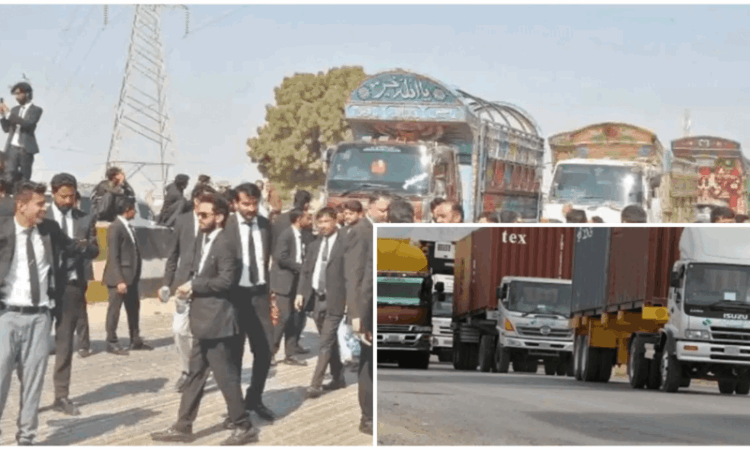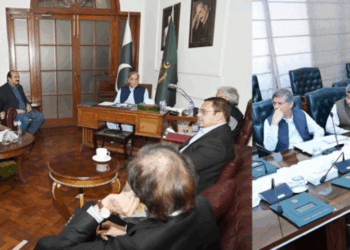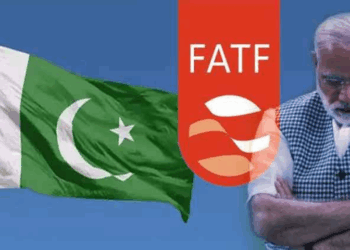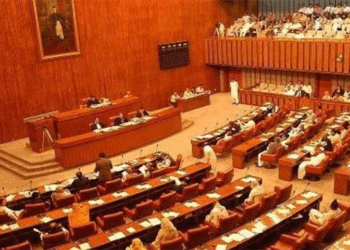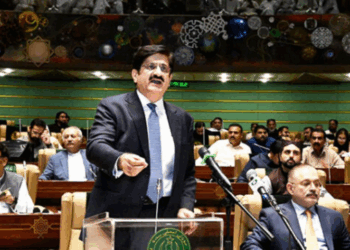Sukkur, April 24, 2025: Protests against the controversial canal projects on the Indus River have escalated dramatically across Sindh, effectively bringing the province to a standstill. Shutter-down and wheel-jam strikes swept through major cities and towns on Thursday, halting commercial activity and choking off road transportation.
Markets remained closed, streets were largely deserted, and public transport systems ground to a halt. In many districts, stranded commuters were left with few options as roadblocks and sit-ins disrupted normal life. One of the most severe choke points remained at Baberlo Bypass in Khairpur, where the local legal fraternity has maintained a sit-in for seven consecutive days. Lawyers from Sukkur joined the protest in a show of solidarity.
Speaking to demonstrators, Karachi Bar Association President Aamir Nawaz Warraich drew attention to the broader regional implications of water politics, stating, “If the people of Sindh stand united, even India would not dare to unilaterally revoke the Indus Waters Treaty.”
Elsewhere, in Warah and Qambar Shahdadkot, a complete shutdown was observed as markets and commercial areas closed. In Obaro, protestors blocked the national highway at the Sindh-Punjab border, intensifying tensions and isolating southern and central trade routes. In Moro, Naushahro Feroze, sit-ins on the national highway stretched into a fifth day, with perishable goods inside parked vehicles beginning to spoil.
Reports from across Sindh painted a picture of rising distress. Transporters warned that delays are causing livestock, poultry, and food supplies to rot, while hotel owners near protest sites are inflating meal prices for stranded drivers. Protesters in Thatta and Qambar Shahdadkot also blocked roads to Balochistan, worsening disruptions in the inter-provincial movement of essential goods.
The situation is particularly dire in Ghotki and Pano Aqil, where fuel shortages have already begun. Protesters in Daharki intercepted vehicles heading to Punjab, exacerbating the growing supply chain crisis.
Transport unions have issued a 24-hour ultimatum to the government, demanding the clearance of the Baberlo blockade. They warned that a truck driver had already died from a heart attack amid the congestion, and further losses would be blamed squarely on both federal and provincial authorities.
According to the Federation of Pakistan Chambers of Commerce and Industry (FPCCI), around 12,000 vehicles are currently stranded on highways across Sindh, including over 1,000 commercial trucks and 2,500 oil tankers. FPCCI President Atif Ikram Sheikh cautioned that the prolonged blockade could trigger shortages of food, fuel, and essential supplies not only in Sindh but also in Punjab and Khyber Pakhtunkhwa.
As the protests enter a critical phase, political and legal circles continue to demand the complete rollback of the federal government’s decision to build new canals, warning of irreversible damage to Sindh’s already strained water resources and agricultural economy.


